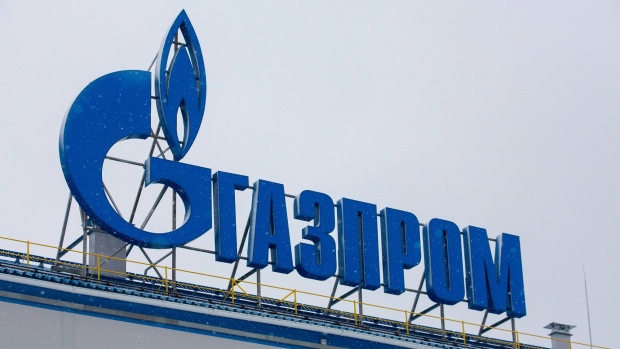Sep 27, 2021
Gazprom Gas Deal Sparks Clash Between Hungary and Ukraine
, Bloomberg News

(Bloomberg) --
Russian energy giant Gazprom’s long-term gas supply agreement with Hungary rekindled a long-simmering conflict between the European Union nation and its eastern neighbor, Ukraine.
The government in Kyiv said the contract was driven by politics and serves to undermine Ukraine by routing gas away from its pipelines. Hungarian Foreign Minister Peter Szijjarto rejected the charge as Ukrainian “interference” into domestic affairs, saying the deal is about “security, sovereignty and economics.”
Hungary, one of Russia’s closest EU allies, signed a 15-year natural gas agreement in Budapest on Monday that will send future gas supplies from Russia through the Balkans and Austria. Along with the Nord Stream 2 pipeline that will deliver Russian gas directly to Germany, the move is seen as weakening Ukraine, which until recently has been the main route for Russian gas supplies to Europe and a beneficiary of revenues via transit fees.
Hungary’s agreement with Gazprom “hurts Ukraine’s national interests” and is a “political, not economically justified decision that’s been made to please the Kremlin,” Ukraine’s Foreign Ministry said in a statement, adding that it would ask the European Commission to assess whether it runs afoul of European energy rules. It “hurts the Ukrainian-Hungarian relationship.”
Gazprom’s chief executive officer, Alexey Miller, defended the agreement by pointing to the diversification of supply routes. That “has become possible to a large extent thanks to efforts of Bulgarian, Serbian and Hungarian companies to develop their national gas pipeline systems,” he said in an emailed statement.
The deal is “a vivid example of the Kremlin policies toward Ukraine,” Serhiy Makogon, chief executive at Gas Transmission System Operator of Ukraine LLC, said Monday in a statement. “Despite a contract until 2024, we expect further declines or a full stop of gas to Hungary via Ukraine.”
Hungarian Prime Minister Viktor Orban has weathered frequent criticism for allegedly acting as a Trojan horse for Russia’s and increasingly China’s interests inside the EU. The government in Budapest consistently rejects this, saying it’s merely acting out of its own self-interest and accuses critics of double-standards.
©2021 Bloomberg L.P.


